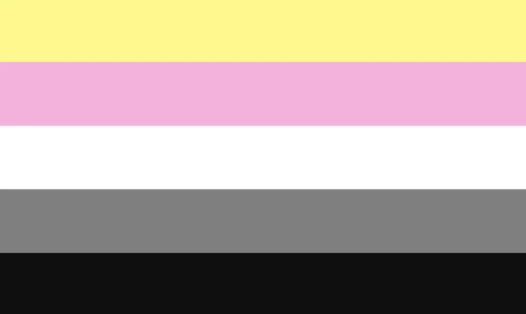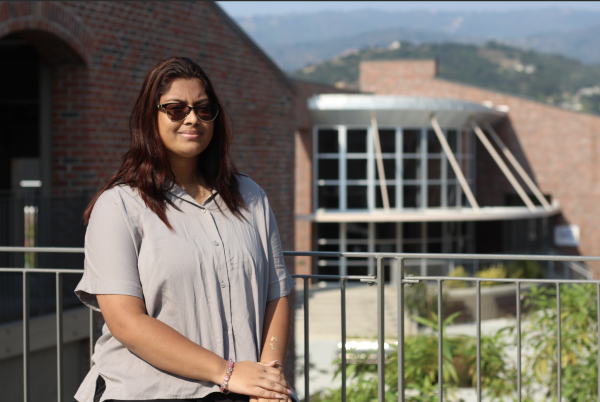A little more than friendship
Recounting my first experience with a queerplatonic relationship

The widely accepted flag for a queerplatonic relationship.
October 4, 2022
For the longest time, there were certain actions and labels that I considered staples for a healthy relationship: holding hands, kisses, late night talks, labels of girlfriend and boyfriend, just to name a few. So, when my longtime friend asked me out for what he called a queerplatonic relationship, my initial response wasn’t excitement, but rather, confusion.
What I later learned was that QPRs are relationships with boundaries, ones in which you dictate what you are comfortable with and the labels you want to use. Oftentimes, they go beyond what is socially acceptable for platonic friendships while not quite matching the traditional feel of a romantic one. While this type of entanglement seemed inviting at first glance, my previous understanding of romantic relationships prevented my immediate acceptance of QPRs.
I’ve always been a fan of romance movies and the quintessential girl-boy relationship that most mainstream pieces of media include. In a way, the oversaturation of these cliche relationships made me feel as though they were the standard, that in order to feel fulfilled I needed to have a relationship that is as similar as possible.
When confronted with a type of relationship I hadn’t seen in my romance books — a queerplatonic romance — I ended up making a couple of somewhat rude remarks due to my lack of knowledge and fixation on attaining a “perfect” stereotypical romance.
It felt strange though, to completely disregard something just because it was something new to me — it would be like everything I had learned about not judging a book by its cover from school and stories were for naught. I realized that even though QPRs may not be mainstream, that didn’t mean I had the right to judge it before even really understanding what it entailed. In order for my opinions to feel justified, I had to first understand what I was judging. As I read and researched about QPRs more, I found the freedom involved in a QPR felt comforting, with you choosing what you want your relationship to encompass instead of it being chosen for you by media stereotypes.
Of course, soon after realizing that QPRs appealed to me, I also realized that I had been a bit of a fool beforehand, thinking that just because something wasn’t explicitly called “dating,” and didn’t include the moniker at first glance, that it was somehow lesser. My experience with relationships through the media had shaped my knowledge in a way that made it so I wasn’t open to anything that challenged what I saw as the standard. That QPR, which I ended up accepting, ended up including some of the happiest months of my life, and the best part about it was the way that my partner and I could rewrite terms and boundaries as we got more comfortable with each other, rather than the terms of our relationship being set in stone.
Generalizing experiences new to us based on prior knowledge — like what I did with QPRs based on what I had seen in romance movies — prevents us from looking at something with a clear and unbiased framework, and can lead to hurtful misconceptions. In order to ensure that we don’t miss out on opportunities like I nearly did, it’s necessary to be open to trying new things, regardless of how random or out of the blue they may seem.



























